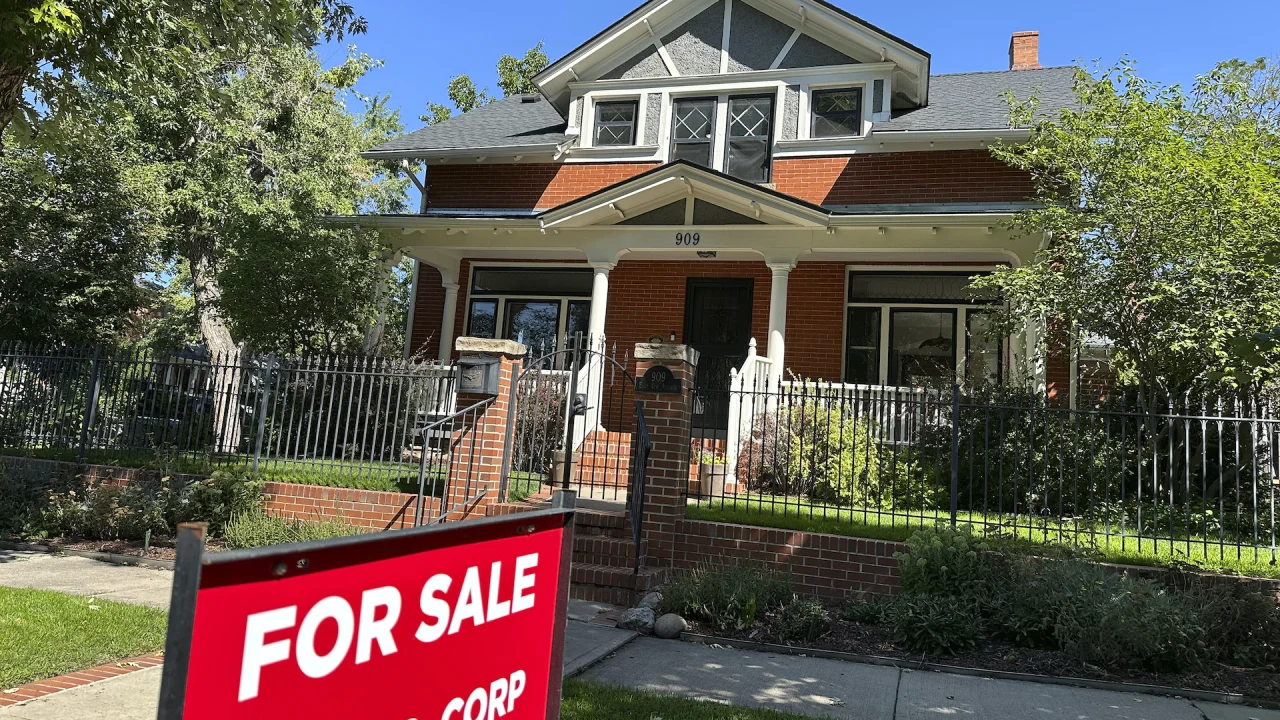Mortgage rates drop to lowest level since early 2023 after rate cut
The average rate on a 30-year mortgage in the U.S. edged closer to 6% this week to its lowest level since early February 2023. The rate fell to 6.09% from 6.20% last week, mortgage buyer Freddie Mac said Thursday. A year ago, the rate averaged 7.19%. The last time the average rate was this low was on February 2, 2023. Borrowing costs on 15-year fixed-rate mortgages, popular with homeowners seeking to refinance their home loan to a lower rate, also eased this week. The average rate fell to 5.15% from 5.27% last week. A year ago, it averaged 6.54%, Freddie Mac said. Mortgage rates are influenced by several factors, including how the bond market reacts to the Fed’s interest rate policy decisions. That can move the trajectory of the 10-year Treasury yield, which lenders use as a guide to pricing home loans. Rates have been mostly easing since July as signs of waning inflation and a cooling job market raised expectations of a Fed cut, sending the yield on the 10-year Treasury lower. That rate cut arrived Wednesday, as the Federal Reserve lowered its main interest rate for the first time in more than four years. Fed officials also signaled they expect further cuts this year and in 2025 and 2026. The rate cuts should, over time, lead to lower borrowing costs on mortgages. The latest pullback in rates should help spur demand for refinancing and home purchase loans, said Sam Khater, Freddie Mac’s chief economist. “While mortgage rates do not directly follow moves by the Federal Reserve, this first cut in over four years will have an impact on the housing market,” Khater said. “Declining mortgage rates over the last several weeks indicate this cut was mostly baked in, but we expect rates to fall further, sparking more housing activity.” After climbing to a 23-year high of 7.79% in October, the average rate on a 30-year mortgage has hovered around 7% for most of this year — more than double what it was just three years ago. The elevated mortgage rates, which can add hundreds of dollars a month in costs for borrowers, have put off many would-be homebuyers, extending the nation’s housing slump into its third year. Sales of previously occupied U.S. homes fell in August even as mortgage rates began easing. Still, as rates have eases, more homeowners have applied for loans to refinance their mortgage. Refinance loan applications surged 24% last week, according to the Mortgage Bankers Association. Economists generally expect mortgage rates to remain near their current levels, at least this year. Fannie Mae said this week it projects the rate on a 30-year mortgage will average 6.2% in the October-December quarter and decline to an average of 5.7% in the same quarter next year. It averaged 7.3% in the same period in 2023. —Alex Veiga, Associated Press business writer

The average rate on a 30-year mortgage in the U.S. edged closer to 6% this week to its lowest level since early February 2023.
The rate fell to 6.09% from 6.20% last week, mortgage buyer Freddie Mac said Thursday. A year ago, the rate averaged 7.19%.
The last time the average rate was this low was on February 2, 2023.
Borrowing costs on 15-year fixed-rate mortgages, popular with homeowners seeking to refinance their home loan to a lower rate, also eased this week. The average rate fell to 5.15% from 5.27% last week. A year ago, it averaged 6.54%, Freddie Mac said.
Mortgage rates are influenced by several factors, including how the bond market reacts to the Fed’s interest rate policy decisions. That can move the trajectory of the 10-year Treasury yield, which lenders use as a guide to pricing home loans.
Rates have been mostly easing since July as signs of waning inflation and a cooling job market raised expectations of a Fed cut, sending the yield on the 10-year Treasury lower.
That rate cut arrived Wednesday, as the Federal Reserve lowered its main interest rate for the first time in more than four years. Fed officials also signaled they expect further cuts this year and in 2025 and 2026. The rate cuts should, over time, lead to lower borrowing costs on mortgages.
The latest pullback in rates should help spur demand for refinancing and home purchase loans, said Sam Khater, Freddie Mac’s chief economist.
“While mortgage rates do not directly follow moves by the Federal Reserve, this first cut in over four years will have an impact on the housing market,” Khater said. “Declining mortgage rates over the last several weeks indicate this cut was mostly baked in, but we expect rates to fall further, sparking more housing activity.”
After climbing to a 23-year high of 7.79% in October, the average rate on a 30-year mortgage has hovered around 7% for most of this year — more than double what it was just three years ago.
The elevated mortgage rates, which can add hundreds of dollars a month in costs for borrowers, have put off many would-be homebuyers, extending the nation’s housing slump into its third year. Sales of previously occupied U.S. homes fell in August even as mortgage rates began easing.
Still, as rates have eases, more homeowners have applied for loans to refinance their mortgage. Refinance loan applications surged 24% last week, according to the Mortgage Bankers Association.
Economists generally expect mortgage rates to remain near their current levels, at least this year. Fannie Mae said this week it projects the rate on a 30-year mortgage will average 6.2% in the October-December quarter and decline to an average of 5.7% in the same quarter next year. It averaged 7.3% in the same period in 2023.
—Alex Veiga, Associated Press business writer






















